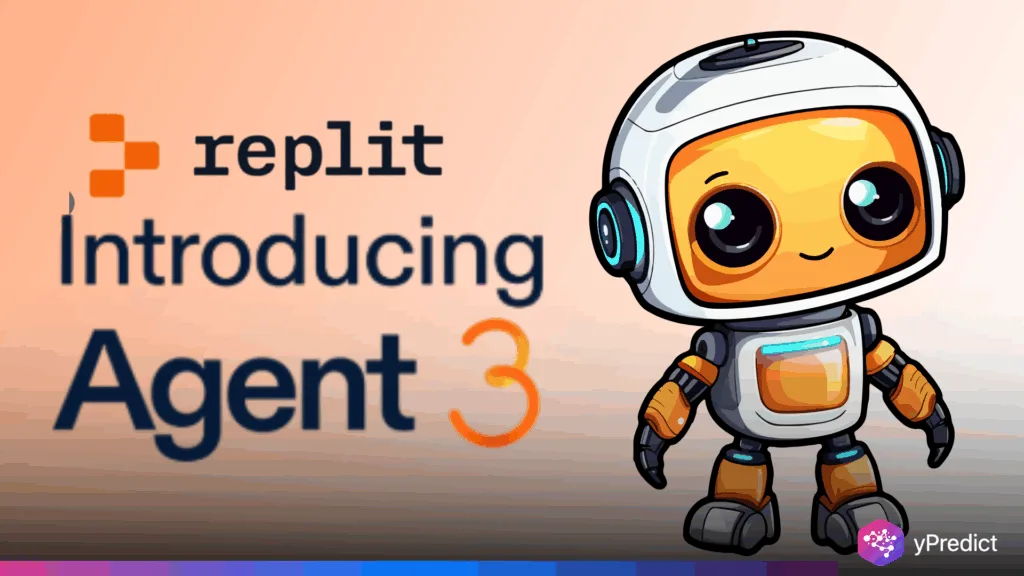
Replit has introduced Agent 3, which goes beyond traditional copilots. This new release enables the AI to write, test, patch, and deploy applications with minimal human intervention. Acting as an AI app builder, Replit Agent 3 supports extended autonomous operations and features an integrated browser-based testing loop.
Plus, it offers tools to build additional agents and automate workflows. In conjunction with the product launch, Replit has secured new funding to accelerate scaling and broaden its enterprise solutions. Thus, this development signals a notable shift.
Exploring New Powers Of Replit Agent 3
Agent 3 significantly extends idle work time; think almost 200 minutes of continuous operation without supervision. So, that’s a substantial boost for teams managing complex builds; more is achieved with less hand-holding.
Here’s where things get interesting: Agent 3 operates using an actual browser environment. It interacts with applications, clicking buttons, submitting forms, and navigating API workflows. It automatically tries to correct the code and retest if a test fails, continuing this cycle until the problem is fixed. Additionally, this approach can lessen the manual QA workload for simple app development.
The broader platform allows users to chain together Agents and Automations. Thus, this is making it easy to set up Slack bots, Telegram integrations, or scheduled workflows. The result? Teams are seeing faster prototyping and a reduction in the usual back-and-forth that tends to slow down the development cycle.
Real Projects Powered By Replit Agent 3
Submit a prompt, and you’ll see a full landing page generated almost instantly. The agent manages everything from layout, copy, and deployment straight to Replit’s hosting. Also, many users report going from initial concept to a live website in just a few minutes.
For developers, Replit Agent 3 offers more advanced functionality. You can instruct it to create integrations, such as a habit-tracking bot for Telegram. It automatically generates the code, runs comprehensive tests, and deploys the endpoints. Thus, this significantly reduces the technical hurdles for app development and building production-ready bots.
Teams can leverage Agents by connecting them to custom workflows. For example, a Slackbot can pull GitHub issues, or a scheduled process can deliver morning digests. These modular tools accelerate product development and experimentation across the organization.
The Starter plan is free; users get up to 10 development apps, and the links aren’t permanent. The Core plan is $20 per month. This unlocks unlimited public and private apps and access to advanced AI tools like Claude Sonnet 4 and OpenAI GPT-4o. It also includes $25 in monthly credits. Team plans start at $35 per user per month. This package includes higher usage credits, private deployments, and tools for group workflows.
Development Shifts Driving Tomorrow’s AI Building Tools
Replit is clearly shifting its strategy toward safer autonomous features. The engineers are now prioritizing enhanced safeguards like automated backups, spending controls, and a new “Plan Mode” for added security. Furthermore, leadership has been vocal about increasing these safeguards, indicating a strong commitment to stability.
They’re pushing for deeper integration with design platforms and cloud marketplaces. Also, with support in place for Figma imports and Google Cloud listings, Replit makes it easier to transition projects from initial design to live deployment. Thus, that’s bound to expand their reach, especially among creators who aren’t traditional engineers.
The Next Chapter In Autonomous App Building
Replit Agent 3 is shaking up the app development workflow. This tool lets you describe what you need, and the autonomous agent handles the task at hand. That means teams can zero in on product strategy and customer needs. Also, for solo founders, it’s like having a smart AI app builder that gets you from concept to live app much faster.






